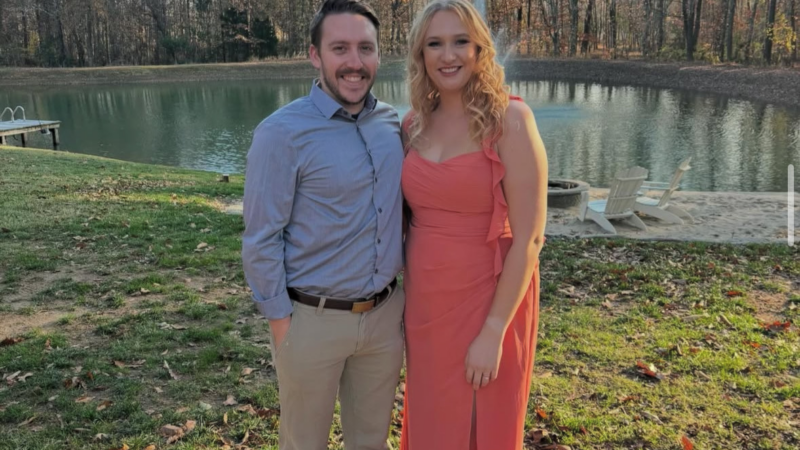Birmingham Civil Rights Institute Commemorates 50th Anniversary of the Civil Rights Act
Panelists take part in a discussion on the 50th anniversary of the Civil Rights Act of 1964. Photo by Rebecca Farmer.
July 2, 2014, is the 50th anniversary of the day Lyndon B Johnson signed the Civil Rights Act of 1964 into law. The legislation prohibits discrimination on the basis of race, sex, color, religion and national origin. Additionally, the act ended discrimination in schools and other public places, and outlawed unequal voter registration policies.
The Birmingham Civil Rights Institute hosted an event this morning discussing how the Civil Rights Act continues to impact Americans 50 years later. Among the panelists were Joyce White Vance, U.S. Attorney for the Northern District; Michael German, Alabama Director for the U.S. Department of Housing and Urban Development; Delner Franklin-Thomas, District Director of the Equal Employment Opportunity Commission and Richard Schwein, FBI Special Agent in Charge for the Birmingham Division.
Panelists generally agreed that Alabama has come a long way since Johnson signed the Civil Rights Act of 1964. Fifty years ago, discrimination was widespread across the country, with Alabama being a central battleground in the Civil Rights struggle.
Delner Franklin-Thomas is District Director of the Equal Employment Opportunity Commission. She said she’s thankful for Birmingham’s place in Civil Rights history.
“I’m proud of the legacy that Birmingham has certainly the demonstrations, what happened at the University of Alabama all of that led to the employment provisions under title seven of the Civil Rights Act of 1964,” said Franklin-Thomas.
The events Franklin-Thomas mentions are well known to students of Civil Rights history.
These include the May 1963 demonstration at Kelly Ingram Park (formally known as West Park), where the Southern Christian Leadership Conference (SCLC) held a massive protest campaign. It was an assembly point for participants in what SCLC called Project “C,” with the C standing for confrontation. It included sit-ins, boycotts, marches, and jailings, all designed to end segregation in Birmingham.
During this attack, Martin Luther King was arrested and spent three days in jail. There, he penned his famous “Letter from the Birmingham Jail.”
Later that year, on September 15, a bomb went off at the 16th Street Baptist Church, killing 4 young girls.
Despite the progress of the last 50 years, Franklin-Thomas told the crowd “We still have work to do.”
The panelists at the discussion also said that, in today’s society, discrimination is the U.S. extends beyond just race or gender.
“Civil Rights is this nation’s unfinished business,” said Joyce White Vance, U.S. Attorney for the Northern District of Alabama. “Both the potential in the 1964 act — which we have to work hard everyday to continue to guarantee — and then beyond the act. We have to continually evolve our definition of who is part of the civil rights community.”
Panelists discussed contemporary discrimination issues ranging from the discrimination faced by the LGBT community to human trafficking to guaranteeing the civil rights of the recently released inmates.
Panelists concluded that citizens have a lot of work to do to move Birmingham forward, but they are all optimistic that we are moving in a positive direction.
His brother’s mental illness isolated his family. Now he’s helping other caregivers
When it comes to serious mental illness, family caregivers are crucial partners. But often, they must fend for themselves. A new solution offers them support.
Out with the mayo: How Ukrainians reclaim holiday food
For many people from former Soviet countries, New Year's is a big holiday feast time. A Ukrainian restaurant in Washington gives NPR a taste of what's on the menu.
Farmers are about to pay a lot more for health insurance
Tariffs, inflation, and other federal policies have battered U.S. farmers' bottom lines. Now many farmers say the expiration of federal health care subsidies will make their coverage unaffordable.
Why do we make New Year’s resolutions? A brief history of a long tradition
One of the earliest mentions of New Year's resolutions appeared in a Boston newspaper in 1813. But the practice itself can be traced back to the Babylonians.
In one year, Trump pivots fentanyl response from public health to drug war
Experts say Biden's focus on addiction health care saved tens of thousands of lives and slowed fentanyl smuggling. Trump scrapped Biden's approach in favor of military strikes.
A little boy gave her hope for her foster daughter’s future
At a neighborhood park, a young boy noticed Natalie's young foster daughter using a walker. His reaction left Natalie with an unexpected feeling of hope for the future.






